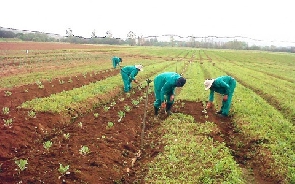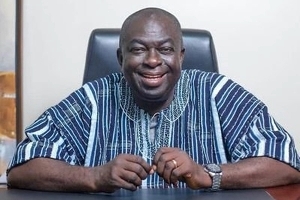Business News of Monday, 12 November 2018
Source: ghananewsagency.org
GTLC organises community durbar on gender-responsive budgeting
The Ghana Trade and Livelihood Coalition (GTLC) has organised a community durbar on gender-responsive budgeting to discuss the needs and challenges of farmers under the Planting for Food and Jobs programme.
The meeting of the trade and agriculture policy and practice advocacy and research organisation shared findings from a data which contained the views of male, female and youth farmers for the 2019 national budget.
It provided a platform for the farmers to engage with duty-bearers so as to make their concerns heard for redress.
At the first meeting in Nakori and Jonga communities in the Wa municipality of Upper West Region, Mr Emmanuel Wullingdool, Policy Officer of GTLC said the organisation was aimed to assess the impact of government policies and policy interventions.
He stated that there was the need to work collectively towards an inclusive development agenda, saying: "The Planting for Food and Jobs policy is implemented to ensure equal benefs of development and to kick out poverty in the region and Ghana as a whole".
Mr Ibrahim Akalbila, GTLC National Coordinator said: “There are many men, persons with disabilities and women who have been left behind because government policies are not reaching them adequately and as people they cannot be left out”.
He noted that Ghana’s economy was growing and expanding, but due to inequality of gender in the development process, poverty was still pervasive among some vulnerable groups.
"GTLC want to ensure that development becomes beneficial to all and not for a few individuals," he said.
A rice farmer, Madam Hamida Issifu, told policymakers to make national budgets gender -responsive particularly in the agriculture sector and direct more investments to empower women.
"Majority of Ghanaians are farmers and stakeholders must take the planting for and jobs policy serious", Mr Abudi Pikpong-Naa, Sub-chief of Nakori said.
He aded: “The planting for food and jobs policy is a laudable initiative, but access to fertilizers, tractors, subsidised credit, and improved seeds are very difficult to get during farming”.
Mr Karim Topie, Assembly Member for Nakori Electoral Area appealed to government to implement modernised agricultural policies to strategically enhance the transformation of the economy by focusing on gender-responsive budgeting.











